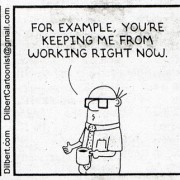Discipline
Over the last number of weeks, we’ve contrasted two fictional farmers and their approach to managing growth, and specifically an expansion opportunity. One failed in his aspirations, the other succeeded. One of the major factors contributing to the results of both examples is discipline.
“Fictional Fred” was lacking discipline. He shot from the hip, and ran his business in a reactionary fashion. He did not make it habit to consider the impact of the decisions he was making, whether it be adding another combine late in the season, or attempting to take on additional land that would equate to an immediate 66% increase in cultivated acres. He recklessly adds equipment to his business which has driven up his equipment cost. This has also come with the cost of damage to his relationship with his primary lenders. Fred behaves in a way that many people think is entitled. He’s done few favors for himself with his recent actions.
“Imaginary Harry” exercises great discipline in how he manages his business. He has a strategy that was constructed with the aid of his trusted advisors. He is confident that his strategy is the best way to achieve his family, business, and financial goals. As such, he establishes operating plans each year that follow his strategy; he maintains a capital expenditure (CapEx) plan that follows his strategy; he sticks with the cash flow and financing plan that follows his strategy. He’ll always politely listen to the pitch of those who are trying to sell him something (because everyone wants Harry to be their customer) but if it doesn’t fit into his strategy, Harry doesn’t buy.
Strategy is not written in stone. Strategy is a a concept as much as it is a plan, and as the CEO you need to be able to adjust your strategy when the environment changes.
Discipline is a character trait, a behavior, that equips a person to avoid distraction and stick to the plan, and as the CEO you need to be able to maintain discipline when warranted, but also be able to permit flexibility when needed.
To test your disciplinary mettle, the next time you face a distraction, ask yourself the following:
- How will this decision affect my strategy (my goal) of achieving ___________?
- Will this have a positive or negative impact on my cash flow and profitability?
- Is this a “want” or a “need”?
To Plan for Prosperity
As defined by Merriam-Webster, strategy is “a careful plan or method for achieving a particular goal usually over a long period of time,” and discipline is “a way of behaving that shows a willingness to obey rules or orders.”
The strategy is yours, you created it. To not maintain discipline to your own strategy is aptly described by Marshall Goldsmith in his book Triggers: “(you’re) failing a test that (you’ve) written!”











Leave a Reply
Want to join the discussion?Feel free to contribute!